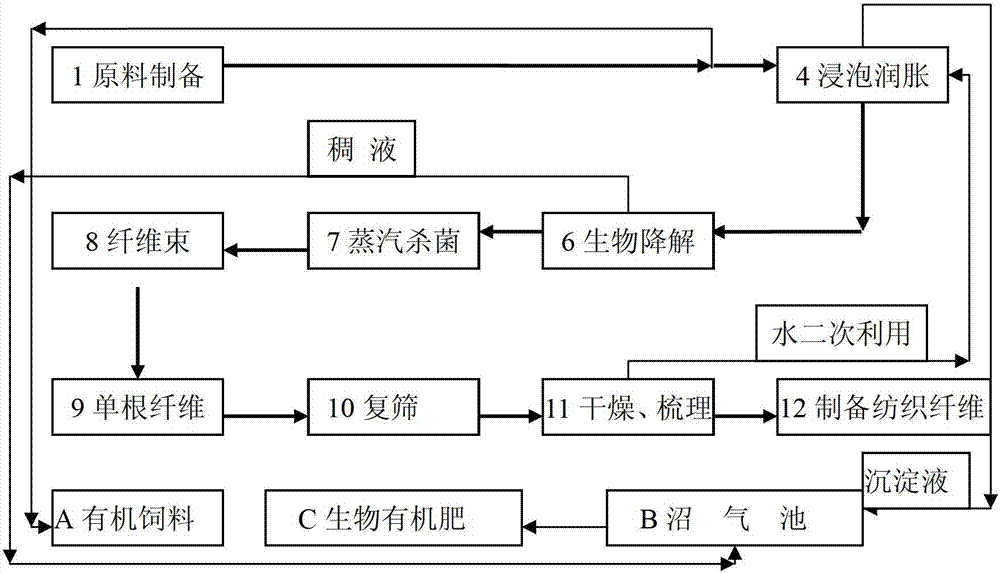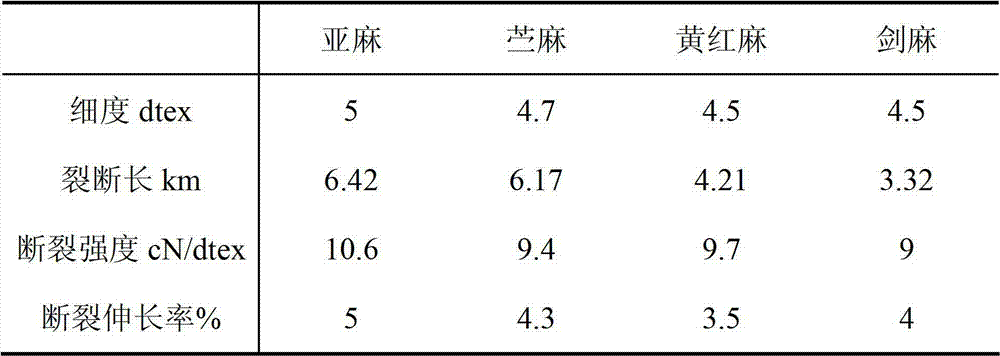Composite flora and application of the same in textile fiber preparation
A technology of composite bacteria and fibers, which is applied in the field of textile fibers, can solve the problems that chemical agents cannot be separated from waste liquid, cannot achieve effective recycling, and organic matter cannot be reused, so as to save coal consumption and improve production efficiency. The effect of low cost, improving purity and yield
- Summary
- Abstract
- Description
- Claims
- Application Information
AI Technical Summary
Problems solved by technology
Method used
Image
Examples
Embodiment 1
[0026] Example 1 Configuration of Bacteria Solution
[0027] The biological bacteria used in the present invention have been preserved on April 6, 2012 at the General Microorganism Center (CGMCC, No. 3, No. 1, Beichen West Road, Chaoyang District, Beijing) of the China Microbiological Culture Collection Management Committee, and the preservation number is CGMCC. Bacillus sp. No.5971, Pseudomonas fluorescens with CGMCC No.5974, Wickerhamomyces anomalus with CGMCC No.5975.
[0028] The above-mentioned composite bacteria group is configured into a composite bacteria aqueous solution according to the following mass ratio, which is the bacterial solution:
[0029] Bacillus: Pseudomonas fluorescens: Wickerhamomyces anomalus is 2-3:1-2:2-3; the density of the formed bacterial liquid is more than 60 million bacteria / ml, for later use.
Embodiment 2
[0030] Example 2 Preparation of fibers from flax
[0031] Using flax as raw material, specify the preparation method of the fiber. The composite flora is configured according to the following mass ratio: Bacillus: Pseudomonas fluorescens: Wickerhamomyces anomalus is 3:2:3.
[0032] For details, please refer to figure 1 , The process flow of the fiber preparation method is divided into three stages: a preparation stage, a fiber section and a by-product section.
[0033] (1) Preparation stage: 1, 4
[0034] Immerse the harvested flax in the soaking bin or soaking tank for washing and cold soaking. First, wash away the soil and other sundries on the surface of the raw material, and soak at the same time. The water temperature is natural temperature, and the time is based on soaking and swelling. 10-12 Hour. After repeated immersion, the liquid becomes turbid, and the supernatant after flocculation and precipitation can be used again. The sediment is input into the digester f...
Embodiment 3
[0048] Example 3 Preparation of cellulose from ramie
[0049]The specific preparation process is the same as in Example 2. The difference is that the composite flora is configured according to the following mass ratio: Bacillus: Pseudomonas fluorescens: Wickerhamomyces anomalus is 3:2:2; during biodegradation, the mass ratio of the raw material after decompression to the bacterial liquid is 1 :7.
[0050] Please refer to Table 1 for the measurement results of the physical performance indexes of the obtained fibers.
PUM
 Login to View More
Login to View More Abstract
Description
Claims
Application Information
 Login to View More
Login to View More - R&D
- Intellectual Property
- Life Sciences
- Materials
- Tech Scout
- Unparalleled Data Quality
- Higher Quality Content
- 60% Fewer Hallucinations
Browse by: Latest US Patents, China's latest patents, Technical Efficacy Thesaurus, Application Domain, Technology Topic, Popular Technical Reports.
© 2025 PatSnap. All rights reserved.Legal|Privacy policy|Modern Slavery Act Transparency Statement|Sitemap|About US| Contact US: help@patsnap.com


